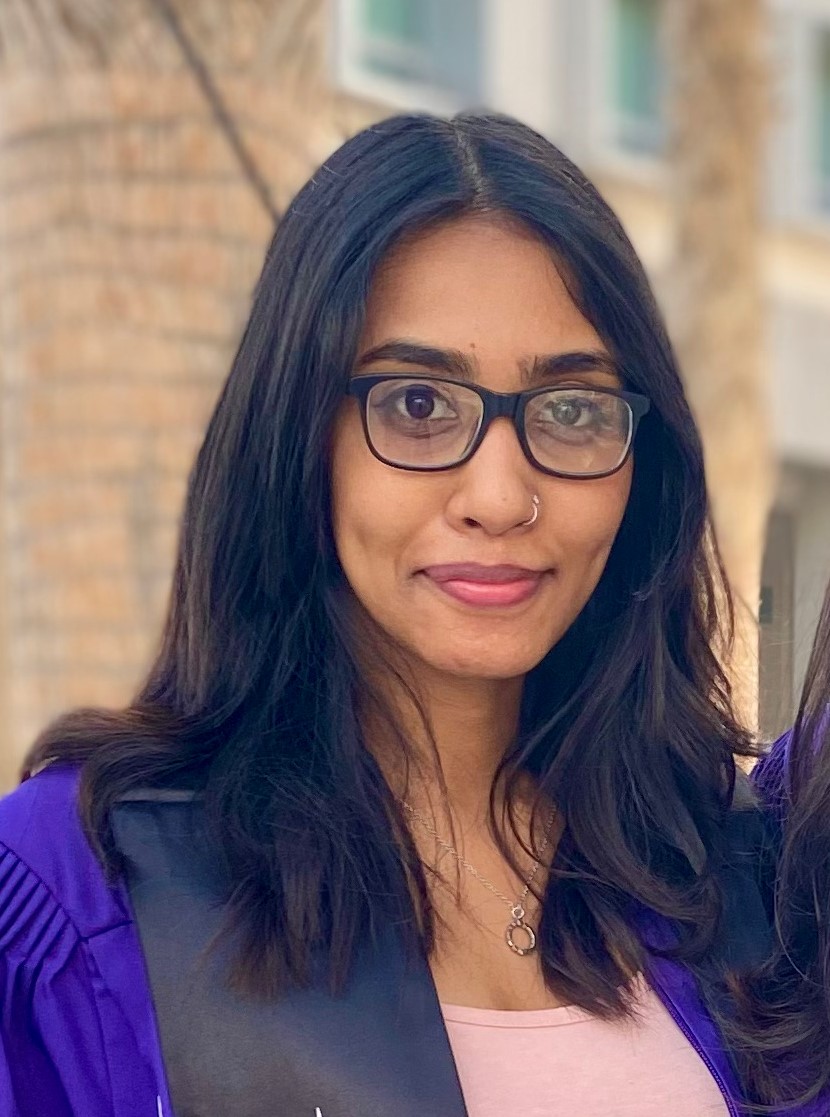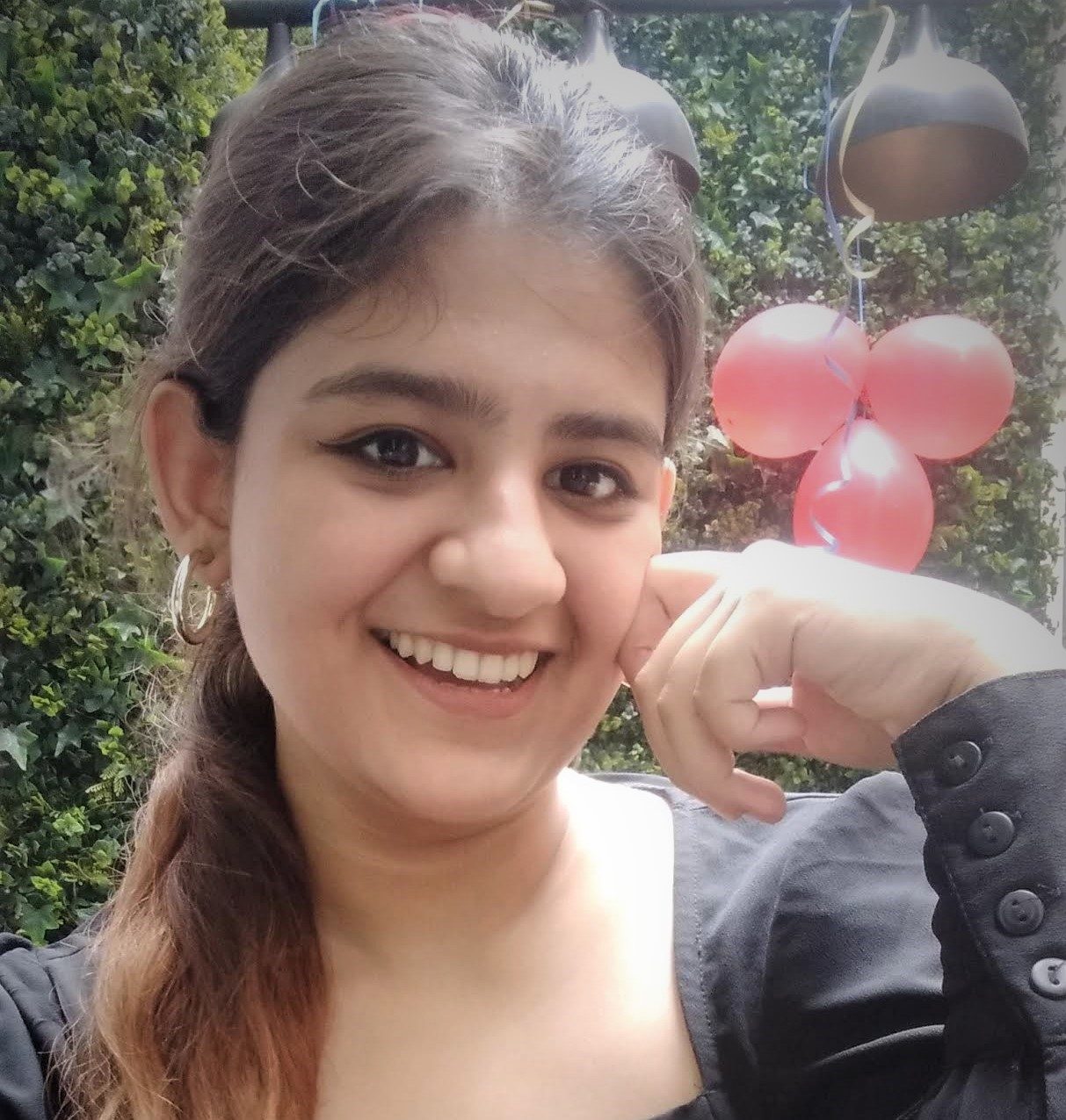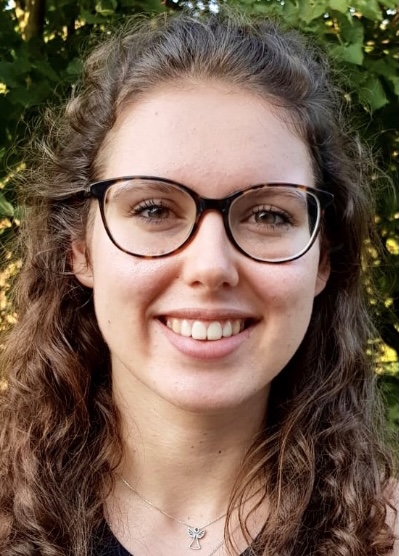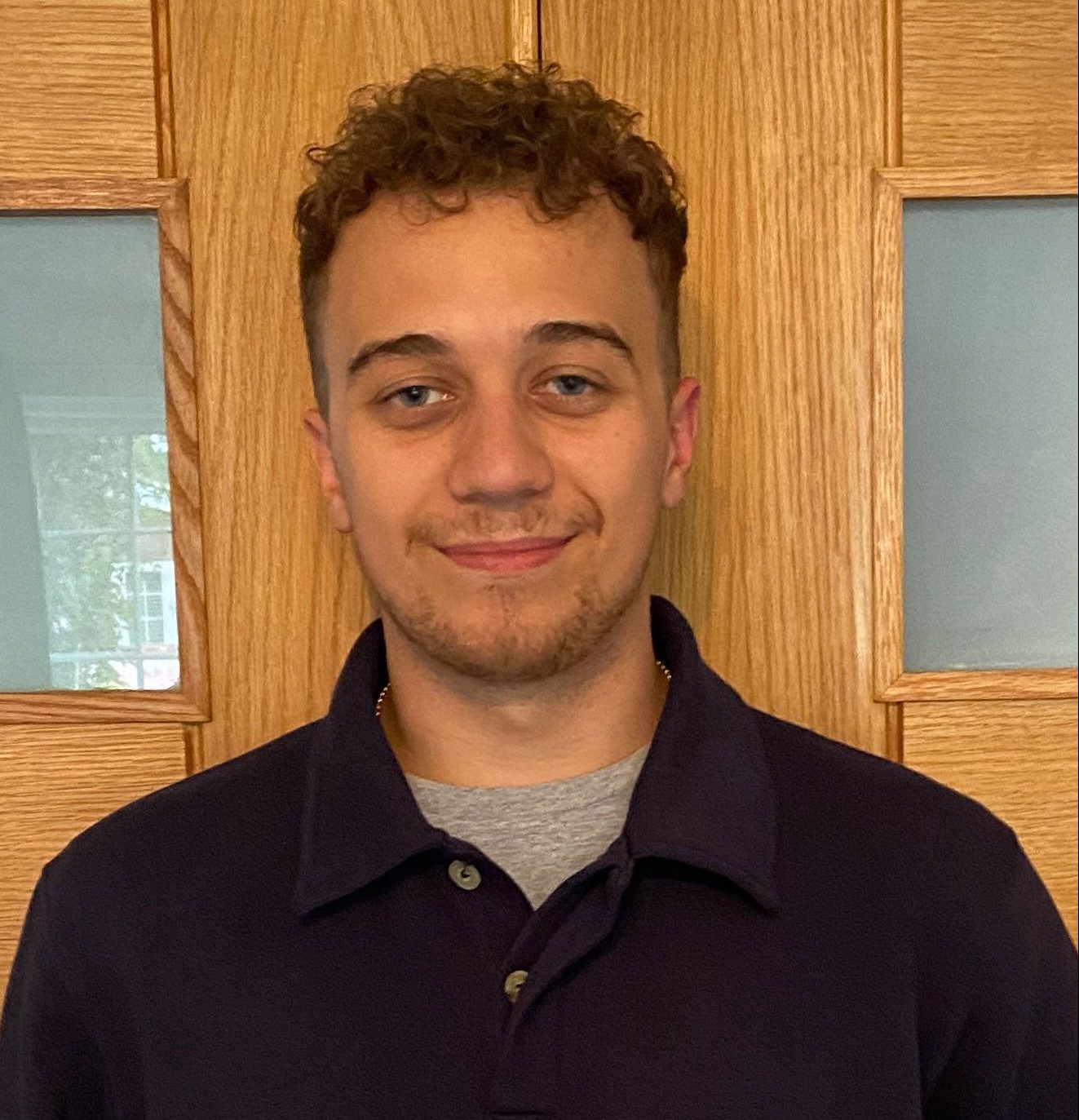Current Final Years
Current Third Years
Current Second Years
Current First Years
Current Final Years
Nico Bruyniks
Nico graduated from Cardiff University in 2018 with a BSc in Biotechnology. Following his bachelors, Nico commenced a MPhil at Cardiff University under the supervision of Prof Eshwar Mahenthiralingam, which he completed in the summer of 2020. For his MPhil project, Nico investigated rhizosphere and soil dwelling Burkholderia bacteria for specialized metabolite production. The 2-year MPhil project provided invaluable experience of an independent long-term research project and inspired Nico to pursue a PhD.
For his PhD project, Nico will investigate the contamination of salad leaves by Listeria monocytogenes, an opportunistic bacterial pathogen responsible for the most serious foodborne disease outbreaks under EU surveillance. This interdisciplinary research project will combine microbiology, plant biology and analytical chemistry to improve food safety through understanding plant-bacterial interactions and developing new rapid detection methods for food borne pathogens.
Isadora Sinha
Isadora graduated from Cardiff University in 2019 with a BSc in Genetics. During her degree, she undertook a placement year at the division of Cancer and Genetics (UHW) where she investigated the factors influencing patterns of somatic mutations. She also completed a CUROP placement under Dr Leanne Cullen-Unsworth at Project Seagrass, collecting and analysing data relating to the citizen science mobile application, SeagrassSpotter. For her final year project, she worked with the Frozen Ark Project, under Prof Mike Bruford and Dr Mafalda Costa, on characterising novel microsatellites in the European hedgehog using in silico methods. Isadora remained at Cardiff University to complete a MSc in Bioinformatics, which included analysis of genetic and transcriptomic neurological data in various projects.
Isadora’s PhD project, under the supervision of Prof Anthony Isles and Prof Nick Bray at Cardiff University, will investigate how imprinted Grb10 influences brain growth.
Alistair Holland
Alistair graduated from Cardiff University with an MBiochem in Biochemistry with a Professional Training Year (PTY) in 2021. He spent his PTY at the school of chemistry at Cardiff University collaborating with a biotechnology company to streamline the production process of a novel hemocyanin. His final year project was undertaken in the lab of Prof. Hilary Rogers investigating the role of the Arabidopsis thaliana gene SAG21 in the wound response. Together, this led to wanting to pursue a PhD in plant biotechnology.
For his PhD project, Alistair will be investigating how to increase essential oil yields in mint plants through genetic manipulation of key biosynthetic pathways.
Naomi Hughes
Naomi graduated from the University of York with a BSc in Biomedical Sciences in 2020. Throughout her bachelor’s degree, Naomi became increasingly interested in the role of the human microbiota in health and disease and the development of antimicrobial resistance. This curiosity brought her to conduct a Master of Research at Imperial College London during which, Naomi has conducted two projects under the supervision of Professor Julian Marchesi. One explored the metabolome and protease activity of C. perfringens in vitro as a pathobiont for Crohn’s Disease and the second, investigated the ability of buffered medium to support a faecal bacterial community.
Naomi will work under the supervision of Professor Eshwar Mahenthiralingam at Cardiff University and Professor Matthew Avison at the University of Bristol to investigate pathogenic community dynamics, identify metabolic modulators of antimicrobial resistance, and use her findings to improve antimicrobial susceptibility testing.
Emily Stonelake
Standard studentship with associate partner: In collaboration with Swansea University + Cardiff University
(she/her)
Emily graduated from Cardiff University with an Integrated Masters in Neuroscience. During her studies, she gained research experience investigating the effect of risk genes in stem-cell derived microglial models of Alzheimer’s disease. She then undertook her master’s project in the Brain Repair Group under supervision of Dr Mariah Lelos, which looked at analysing the functional efficacy of stem cell-derived cell replacement therapies in a rodent model of Parkinson’s disease.
Emily is now undertaking a PhD under the supervision of Prof Yuqin Wang at Swansea University in collaboration with Prof Meng Li at Cardiff University. The project aims to investigate the interplay of cholesterol homeostasis and neural development, combining both neural stem cell technology and advanced mass spectrometry techniques.
Hanna Wyszynska
Olsztyn born, Hanna came to England in 2017, to pursue BSc in Neuroscience at Keele University. During her Bachelors degree she mainly focused on learning and memory, molecular neuroscience and bioinformatics. Her dissertation was a systematic review which focused on the effect of free radicals on memory consolidation. Her PhD project will focus on the formation of memories of touch and follow their path in the rodent brains. The research will use electrophysiological techniques and viral transfections. The project ties to her interests of learning and memory, and will allow her to enhance her programming and bioinformatic skills.
Current Third Years
Jack Carpenter
Jack graduated from Cardiff University in 2021 with a BSc Biological Sciences (Genetics). He went on to complete an MRes in Biological Science at Cardiff, investigating the role of the transcription factor TCP4 in gene regulatory networks that control leaf development in Arabidopsis thaliana. Jack’s studies left him with an interest in leveraging computational techniques to help answer questions within systems biology.
His PhD will continue to define the roles of transcription factors in plant development under the supervision of Dr Simon Scofield and Professor Jim Murry. The project focuses on understanding gene regulatory networks that govern pluripotency in plant stem cells, whilst also promoting leaf development.
Salma Haniffa
Salma graduated from New York University Abu Dhabi in 2021 with a BSc Biology and specialization in Brain and Cognitive Science. Her final year project explored the relationship between circadian temperature rhythmicity and chronic social stress in mice. Following graduation, Salma worked as a Research Assistant at the Chaudhury Laboratory of Neural Systems and Behavior, where she expanded upon her research on circadian rhythms.
For her PhD, Salma will further her interest in neuroscience under the groups of Prof Seralynne Vann and Prof Frank Sengpiel at Cardiff University. Her project will focus on studying visual-spatial processing within the retrosplenial cortex of the brain.
Tess Harrison
Tess initially worked in the commercial application of iPSCs before starting her BSc Molecular Biology at the University of Manchester (2018-2021). During her degree, Tess competed in 2019 Manchester iGEM team, achieving gold and a nomination for best new application. Following her degree, Tess worked for the Caswell Lab investigating Rab11 proteins while developing associated tools. Tess joined the Raff lab in October 2021 for a MSc by Research, where she investigated centriole assembly in Drosophila. Tess is currently pursuing a PhD developing four wave mixing microscopy for correlative light electron microscopy in the Borri and Verkade labs.
Niharika Singh
Niharika completed her Bachelors in Zoology (Honours) from the University of Calcutta (2016-2019). During her penultimate year she developed a predilection for Neuroscience. Her interests were rooted in studying patient histories focusing on hippocampal degeneration. This became the driving force nurturing her interest in hippocampal adult neurogenesis as a possible therapeutic arena of research.
She was awarded the Jawaharlal Nehru University Combined Entrance Examination for Biotechnology fellowship by the Ministry of Science and Technology, Government of India to pursue a master’s in Neuroscience at the School of Studies in Neuroscience, Gwalior (2019-2021). Her master’s dissertation project was conducted at the Indian Institute of Technology, Madras, where she used computational neuroscience to model the exploratory dynamics in the STN-GPe subsystem of the basal ganglia.
Niharika will pursue her Ph.D. project under the collaborative supervision of Dr. Isabel Martinez Garay, Dr. Florian Siebzehnrubl, and Dr. You Zhou. She will investigate the transcriptional regulation of astrocyte specification across development and adulthood, furthering our understanding of the fate specification of neural stem cells during adult neurogenesis.
Lucie Tkáčová
Lucie graduated from the University of Portsmouth in 2021 with a BSc Biomedical Science with a sandwich year, during which she completed the IBMS registration portfolio. In her final-year project, Lucie investigated the role of mitochondrial DNA single nucleotide variants in glioblastoma under the supervision of Dr Rhiannon McGeehan. This project inspired her to continue in mitochondrial research and lead her to undertake a Master of Research at the University of Portsmouth.
At Cardiff University, Lucie will work under the supervision of Dr Gaynor Smith, investigating the effect of mitochondrial aberrations on neuronal ageing using Drosophila techniques.
Iwan Williams
Iwan graduated from the University of Bath in 2021 with a BSc Biology. He spent much of his studies developing a foundation of understanding in Cell and Molecular Biology, Neuroscience and Genetics. During his final-year project, he joined the lab of Dr Nikolas Nikolaou to investigate the cytoplasmic role of the spliceosome factor SNRNP70 using a double transgene in a Danio rerio model.
Iwan will be undertaking his PhD in the laboratory of Dr Emyr Lloyd-Evans, where he will be using new technologies from Nanion and Liquids Research to investigate the latter stages of the process of Autophagy, an essential cellular process which breaks down and recycles cellular contents and organelles. He will be focusing on how the autolysosome recovers after the fusion of the lysosome and autophagosome, a process often overlooked in current models.
Current Second Years
Emily Darby
Emily graduated from Cardiff University in 2021 with a BSc in Biochemistry, during which time she established her interest in research when collaborating with the IBEX diabetes research group as part of her professional training year. She subsequently completed a Masters of Research at Cardiff University studying the roles of genes involved in maintaining pluripotency within the shoot apical meristem of plants, sparking her interest in pursuing plant research.
Emily’s PhD project will continue within the field of plant molecular genetics under the supervision of Dr Simon Scofield and Dr Tamara Lechón Gómez at Cardiff University. Her project will look to investigate the mechanisms employed by transcription factor TCP4 in cell reprogramming of root tissues, and to establish whether TCP4 is a pioneer transcription factor in plants.
Melissa Ferreira
Melissa graduated from the University of Reading with a BSc in Microbiology in 2023. Her final year undergraduate project completed under the supervision of Dr Simon Andrews investigated the stress response to streptonigrin of the gene mbfA in Burkholderia multivorans. Since then, her interest in the relationship between pathogens and the immune response led her to pursue a PhD project in this field.
Melissa’s PhD project is titled ‘Predicting the effects of coinfection on TB dynamics, pathology and treatment’. The project aims to test a pre-existing predictive framework to develop a mathematical model which can be applied to various co-infections to predict consequences. The project is supervised by Dr Joanne Lello (Cardiff University), Dr Sarah Perkins (Cardiff University), Dr Pere Joan Cardona (L’institut de Recerca Germans Trias I Pujol), and Dr Emmanuel Serrano (Universidad Autónoma de Barcelona).
Kerstin Lieu
Kerstin graduated with an Integrated Masters in Biology from the University of Bristol in 2020. During her degree, Kerstin developed a strong interest in the mechanism behind how plants respond to changing environments and its application to improve food security. For her final year project, Kerstin looked to identify ABA transporter genes involved in hydrotropism; an adaptive trait to aid plants in water foraging. Following graduation, Kerstin worked for Public Health Wales in a diagnostic microbiology lab, but wanting to work in research again, she decided to pursue a PhD.
Now at Cardiff University, Kerstin will undertake her PhD which focuses on the effects of perturbing polyamine metabolism on development and stress responses in Arabidopsis thaliana.
Hanady Nehme
Hanady graduated from the Neuroscience Research Centre of the Lebanese University with a MSc in Neuroscience in 2017. Her final project was conducted at the Leibniz Institute for Neurobiology in Magdeburg, Germany, exploring the effects of the Jacob protein on the pathogenicity of Alzheimer’s disease in transgenic mice. Then, she spent several years in Magdeburg investigating the cognitive functions of the auditory cortex in monkeys using behavioural, electrophysiological, and pharmacological approaches. Through her studies and training, Hanady aspires to contribute to the development of novel therapies for degenerative diseases.
Her PhD will be based in Cardiff University under the supervision of Dr Ben Mead and Dr Aled Clayton, where she will explore the role of extracellular vesicles in the eye’s normal physiology and disease, as well as their potential therapeutic applications in rodent models of age-related visual decline, e.g. glaucoma, and Human retinal ganglion cells in culture systems.
Brooklyn Rowlands
CASE studentship
Brooklyn graduated from Cardiff University in 2021 with a Biochemistry BSc. During her undergraduate she undertook an industrial placement with Cytiva, focussing on bacterial contamination and how this affects industrial processes. Specifically, she became interested in the crossover between gram-negative antimicrobial-resistant (AMR) bacteria as industrial contaminants and pathogens. She was able to further develop this under the supervision of Prof Eshwar Mahenthiralingam in her final year. Recently, Brooklyn qualified and worked as a science teacher, pursuing a passion for science communication.
Returning to the MMI lab at Cardiff, her PhD project will explore the role of multifunctional ingredients in the preservation of home and personal care products, monitor priority contaminants at Unilever and use metagenomics to understand AMR mechanisms further.
Current First Years
Thomas Duffy
Thomas graduated from the University of Portsmouth in 2023 with a BSc in Pharmacology. After graduation, he spent the summer doing patch claming in the biomedical research centre of Leicester University. He then went on to do a MSc in artificial intelligence and machine learning.
These three points come together for Tom’s PhD project, which is based around the use of artificial intelligence and automated patch clamping for drug discovery. A key aim of this project is to determine how uncharacterised lysosomal ion channels work, by determining how they work and finding small molecules which inhibit and activate these channels. To discover the small molecules, AI systems will be developed and used to look at structural information, of the channel, and any known activators to find similar molecules.
Phos Hayes
Standard studentship with associate partner: In collaboration with University of the West of England (UWE) + Cardiff University
(they/them)
Phos graduated from Cardiff University as a Master of Biomedical Sciences in 2024, following four years of an integrated master’s degree. During their research project, they investigated Listeria monocytogenes soil persistence and its colonisation of spinach under the supervision of Dr Cedric Berger. Phos’ interest in microbial interactions associated with plants heightened during their time at Cardiff. Prior to starting university, they worked part-time as a laboratory technician.
Phos’ PhD is supervised by Dr Sarah Christofides, Dr Carrie Brady, Professor Lynne Boddy, and Dr Robin Thorn. Their project aims to investigate Fungal-Bacterial interactions within broadleaf trees affected by wetwood, providing insight on its management.
Tom Jenniches Perez
Standard studentship with associate partner: In collaboration with Swansea University + Cardiff University
Tom graduated from Swansea University with an MSci in Medical Biochemistry in 2023. During the final year of this degree, Tom completed a 10-month research project analysing the effect of novel treatments on cholesterol metabolism in the Huntington’s disease (HD) brain utilising cutting-edge mass spectrometry imaging (MSI) within the Griffiths-Wang (GW) Research Group at Swansea University. His interests in cholesterol metabolism, MSI and analysis of oxysterols via mass spectrometry led him to work as a Research Assistant on the ‘3-D Neurosterol Atlas of the Mouse Brain’ in the GW Research Group, in collaboration with the University of Edinburgh, in 2024.
Tom’s PhD project, supervised by Prof William Griffiths (Swansea University) and Dr Josie Parker (Cardiff University), aims to characterise CYP46A1, the major cholesterol metabolising enzyme in the brain, and determine the activity of this enzyme via MSI.
Jonathan Odira Osano
Jonathan holds a BSc in Fisheries and Aquaculture from Jomo Kenyatta University of Agriculture and Technology (2019), followed by a one-year industrial experience at Great Lakes University of Kisumu. Over 2021/23, he completed his MSc project on health risks of polycyclic aromatic hydrocarbons in processed fish at the University of Ibadan. This research ignited his passion for investigating the biological effects of emerging pollutants in aquatic ecosystems and their implication for food security.
His PhD project, supervised by Prof Paola Borri and Prof Joanne Cable, aims to use a unique in-house developed coherent Raman microscopy to reveal the spatial location and accumulation of micro/nanoplastics (M/NPs) inside the cells and tissues. These microscopy studies will be paired with M/NP treatments to assess the biological effects of petrochemical plastics and bioplastics on aquaculture fish (rainbow trout) using advanced bioassays of fish growth, metabolic rate, and transcriptomic analysis.
Chelsea Stevens
(she/her)
Chelsea graduated from Cardiff University with a BSc in Biomedical Sciences in 2021 and an MSc in Cancer Biology and Therapeutics in 2024. During her studies, she developed a strong interest in developmental and cancer biology, specifically the underlying connections between stem cells and diseased cells. This continued through her MSc, focusing on cellular signaling mechanisms underlying cancer development and progression. Her MSc research explored novel therapeutic inhibitors targeting cellular motility and migration during cancer metastasis, the same fundamental mechanisms used during development and repair.
Under the supervision of Dr. Michael Taylor and Dr. Pete Watson, Chelsea will continue to pursue these interests through her PhD project investigating muscle progenitor and stem cell activation in differentiation and repair using the model organism Drosophila melanogaster. Ultimately, to understand protein and cell behaviour in the earliest steps of progenitor cells in the differentiation pathway —an important question in stem cell biology.
Amber Williams
 (she/her)
(she/her)
Amber graduated from Cardiff University with a BSc in Biochemistry in 2021, and followed this with a MSc in Biotechnology in 2022 from the University of Glasgow. During her academic career she conducted research on the impact of climate change related abiotic stress on volatile organic compound (VOC) production in perennial ryegrass. This experience inspired her to explore effects of abiotic stress in plants at a cellular level and encouraged her interest into the driving mechanisms of variation in responses between cells.
For her PhD, under the supervision of Dr Angharad Jones and Dr Tamara Lechon Gomez, Amber will investigate the epigenetic mechanisms underlying stress response variability in Arabidopsis thaliana. Her research will involve developing root growth assays to assess cellular sensitivity to salt stress and optimizing protocols for the fixation and extraction of nuclei from salt-stressed roots.


